Will the recently popular "metaverse" become another dystopian nightmare?
Recently, the whole world seems to be talking about the "metaverse". From domestic to foreign, tech giants and investors are flocking to it, and it has also attracted many people who don't know why.
On November 5, Luo Yonghao announced his entry into the Metaverse on Weibo, which attracted the attention of a large number of netizens. Luo Yonghao said that what he wants to do is different from the metaverse company that has been hot in the market before. He believes that the metaverse understood by Shaan Puri - the metaverse is not a virtual space, but a strange place where the value of digital life is greater than that of physical life. Moments — more plausible than Zuckerberg's Metaverse. Luo Yonghao, who was ridiculed by netizens as an "industry lamp", gave up his entry into the car manufacturing industry and was ready to join the entrepreneurship wave of the Metaverse after paying off his debts.
And just earlier this month, Facebook founder Mark Zuckerberg has renamed "Facebook" to "Meta". Zuckerberg said that from now on, the company's business will give priority to the Metaverse's business, and many investors have also invested in Metaverse-related industries and concept stocks. In addition, companies such as Microsoft and Nike have previously announced their entry into the Metaverse market; domestic Internet companies such as Baidu and NetEase are rushing to register related trademarks.
In this issue, I want to talk to you about what is the recently hot "metaverse"? In fact, every company that intends to enter the "blue ocean" of the Metaverse has its own definition. Is the Metaverse a commercial gimmick? A blueprint for the future of human life, as these companies advertise? Or is it the terrifying dystopia of science fiction?

Zuckerberg shows off the company's new logo after the company's name change to "Meta".
A mysterious metaverse?
While everything about the metaverse is still being debated, in general, the basic characteristics of the metaverse have been generally accepted by the industry.
Let's first look at Wikipedia's definition of the metaverse:
The elements of the metaverse "include the physical and virtual worlds, a fully functioning economy, including the transferability of avatars and digital assets across different parts of the metaverse. The metaverse will be decentralized and will have many companies and individuals in Operate your own space within the Metaverse. Other qualities of the Metaverse include digital persistence and synchronization, which means that all events in the Metaverse happen in real time and have permanent effects. The Metaverse ecosystem includes user-centric Central elements such as Avatar identity, content creation, the virtual economy, social acceptability, security and privacy, and trust and accountability.”
This definition looks a bit abstract at first glance, but it emphasizes several points: virtual economy, decentralization, simultaneous real-time, virtual identity. Simply put, we can do in virtual space what we can do in the real world, so this universe is "meta" (transcendence).
The term "metaverse" originated from the science fiction "Avalanche" published by American author Neal Stephenson in 1992. Neil Stephenson said: "Put on headphones and eyepieces, find the connection terminal, and you can enter a virtual space simulated by a computer and parallel to the real world as a virtual avatar."
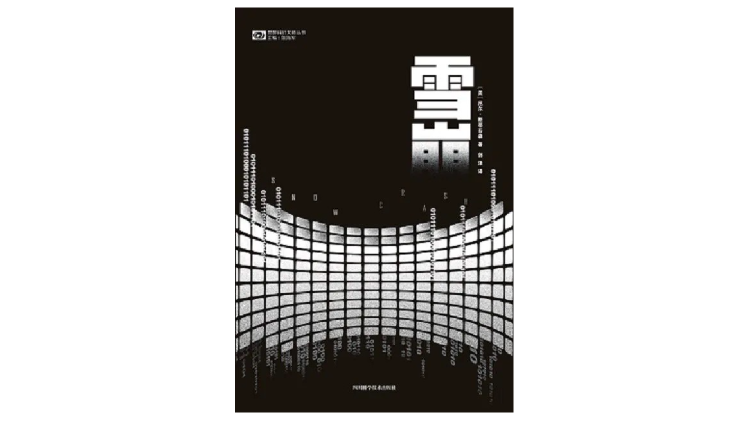
"Avalanche", by Neil Stephenson, translated by Guo Ze, Sichuan Science and Technology Press, July 2018.
In Avalanche, the metaverse is a virtual urban environment that develops along a 100-meter-wide road paved on a black spherical planet. Land in this virtual world can be purchased, and people can develop buildings on it. Metaverse users can enter the Metaverse through personal VR glasses or public VR glasses and interact on the client side.
That might not sound like enough. In fact, the metaverse is nothing new. Many well-known science fiction works have long imagined how humans can live in another virtual space through virtual reality technology, but they did not use the word "metaverse".
The Matrix, as everyone knows it, depicts a dystopian world where people live in a "matrix". This "matrix" can be seen as the metaverse. The "Oasis" in the movie "Ready Player One" released in recent years is also a metaverse. In Ready Player One, the future world is shrouded in energy and climate crises, and with the economy stagnant, most people escape reality by entering a metaverse called "Oasis" through VR glasses. In Oasis, people play games and have normal social interactions. As long as you have seen these classic movies, everyone's imagination of the metaverse can be immediately concretized.
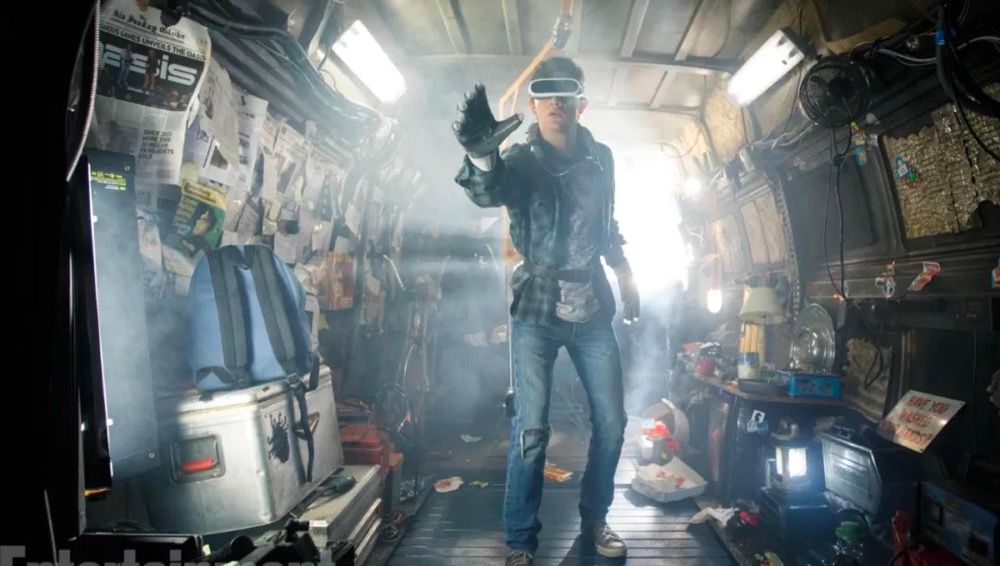
A still from the movie Ready Player One (2018).
So, whatever the interpretation, the metaverse is not a new concept, but a repackaging of a bunch of classic concepts and technological imaginations. The realization of the metaverse requires various new digital technologies such as extended reality (such as AR, VR, MR), blockchain, cloud computing, artificial intelligence, etc. Through interactive immersion technology, we can achieve a full-sensory immersive experience in the metaverse, have a "done" in the digital world, and create content, socialize, and trade in the digital world. Blockchain technology provides a safe and stable economic system for the metaverse world.
Attempts at the "First Metaverse":
A prelude to the future?
In real life, technology has led people to the edge of the metaverse. In 2017, the shooting game "Fortress Night" developed by Epic Games has been hailed as the "first metaverse". This game combines social media, streaming media platforms and games to create a virtual world beyond games. Players can socialize and take risks. Unlike traditional social media with only web pages, Fortnite is more similar to the social experience players can get in real life.
During the epidemic, the number of players of Fortnite has skyrocketed due to the blockade orders of various countries. In May 2020, Fortnite had 350 million registered players. Among them, many are so-called millennials and Gen Z. According to NRG, 10- to 17-year-olds spend at least 25% of their weekly leisure time playing Fortnite, a higher percentage than any other form of entertainment. "Fortnite is, in some ways, the new Facebook," said Henry Cowling, creative managing director at digital production company Media Monks.
Players are keen to socialize on Fortnite. The huge popularity not only attracted singers to enter the game to hold concerts - in April 2020, American singer Travis Scott held a virtual concert on "Fortnite", with more than 12 million viewers watching and interacting. "Fortnite" also attracted ads from the Major League Rugby - players can choose to wear their jerseys. In addition, during the promotion of "Avengers", "Fortnite" players also played the role of the movie, and even the latest "Star Wars" movie clips were premiered in the game.
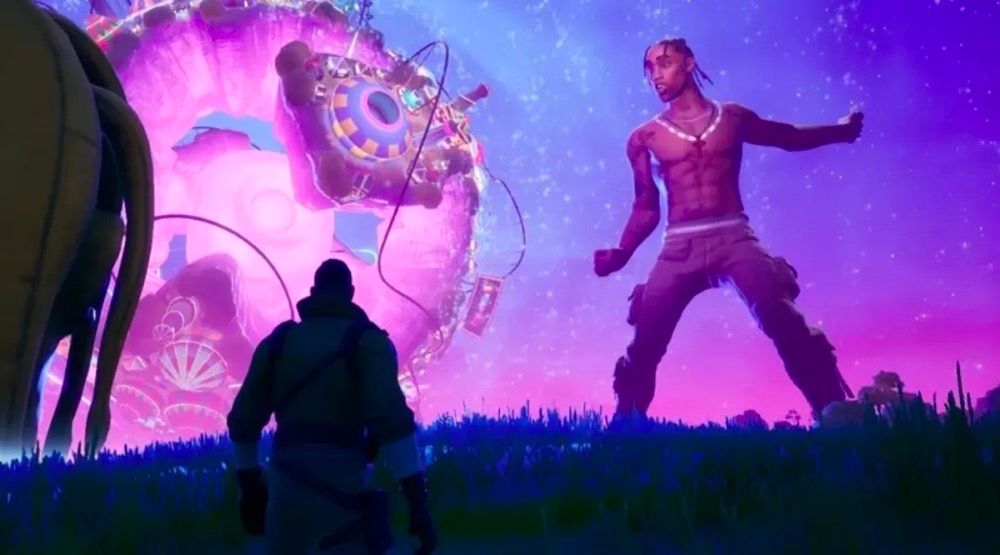
Image of Travis Scott hosting a virtual concert from the game Fortnite.
In March of this year, the game platform Roblox was listed on the New York Stock Exchange, rising 54.4% on the first day, known as the "first stock of the metaverse", and its market value even surpassed that of game giants such as EA. On Robles, a gaming platform, players can not only participate in the game, but also create and profit from the simple tools in its workshop.
Unlike Fortnite, Roblox is decentralized and open. It relies on players' content creativity to build this virtual world. Players can create everything in life in this virtual world. Moreover, its virtual economy system allows players and content creators to conduct a virtuous cycle. Players can use real currency to buy virtual currency in the game, and trade on this platform to buy various skins and props in the game. Unlike the "Krypton Gold" game we are familiar with, we often buy in-game currency or earn in-game currency that cannot be directly exchanged for cash, but the virtual currency in Robles can be exchanged back to real life. in currency. That is to say, Robles made a lot of concessions to the players, which also helped the operation of the virtual economy system in the game.
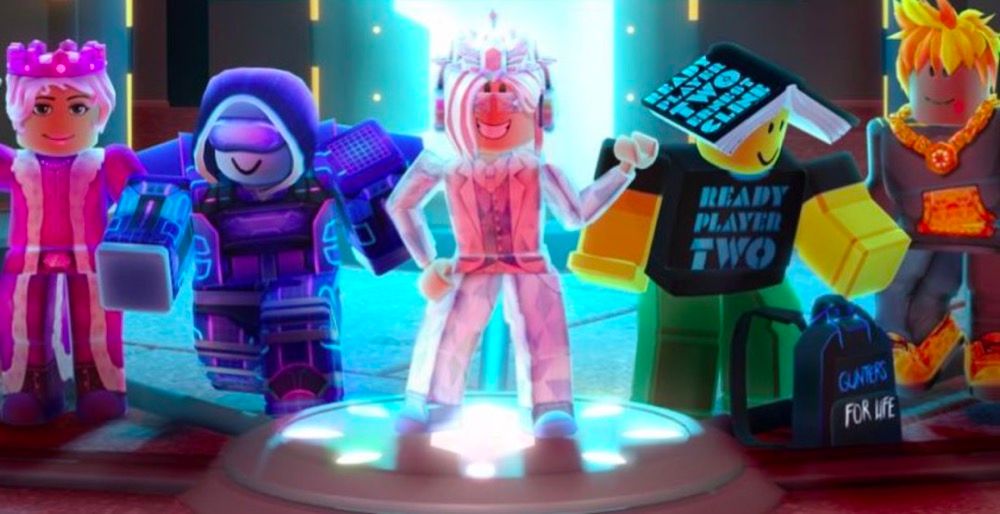
Game screen of the Robles platform.
Similarly, Robles has attracted a large number of players. As of September last year, Robles had 31.06 million daily active users, and 54% of these users were children under the age of 12. Similar to Fortnite, in May, Robles hosted an immersive experience for the 100th anniversary of the Gucci brand, where players could buy limited-edition Gucci merchandise for their virtual identities. Rock band Twenty One Pilots also performed on Robles in September.
Of course, "Fortress Night" and Robles are just the prototype of the metaverse, and there is still a long way to go before the true realization of the metaverse, and there are still many technical difficulties that need to be overcome. But we can imagine the future from these two most typical metaverse games: every day you wake up, you turn on your computer and log in to the metaverse, and start your day of work or study. Your company is in the metaverse, where you meet (study) with colleagues (or classmates) all over the world, do PPT, type code, create content, and even fish (this is also Zuckerberg and Microsoft) such as one of the company's ideas). After get off work, you shop in the virtual world, watch movies, play games, watch concerts, socialize, fall in love (this is also the vision of "Fortress Night" and Robles)... You may no longer need to go to "North Drift" "Or "Hu drifting", you don't need to squeeze the subway to commute, worry about rent, you can live the life you want.
The next dystopian nightmare?
Whether for hype or idealism, tech giants are full of praise for the Metaverse. Before the millennium, people had such an imagination about the Internet: the Internet will connect people from all corners of the world. People all over the world can speak freely on the Internet, exchange information, and everyone has an equal opportunity to speak on the Internet, forming a public space for rational discussion and consensus, and even equal opportunities to create wealth. The spirit of equality and openness held by the Internet will make the world a better place. But think about the trolls and cyber violence on the Internet, the information cocoon you live in, the spread of extreme populism, the exploitation of unstable labor by the platform economy, and the ubiquitous privacy leaks... Once ideals have all been realized. to make?
This spirit of technological optimism prevails before every technology is born. The creators of technology often hope that the world will be a better place because of technology - the beautiful here refers to practicing the progressive values of equality and openness. But this ideal of techno-optimism is bound to be distorted by existing social institutional forces (political, economic). Of course, in contrast to this, the fear of technology enslaving human beings goes hand in hand. Beginning with Frankenstein, the starting point of countless sci-fi works is to be wary of the dystopias brought about by technology. This kind of reflexivity reminds humanity all the time that blind technological optimism can lead to even worse consequences.
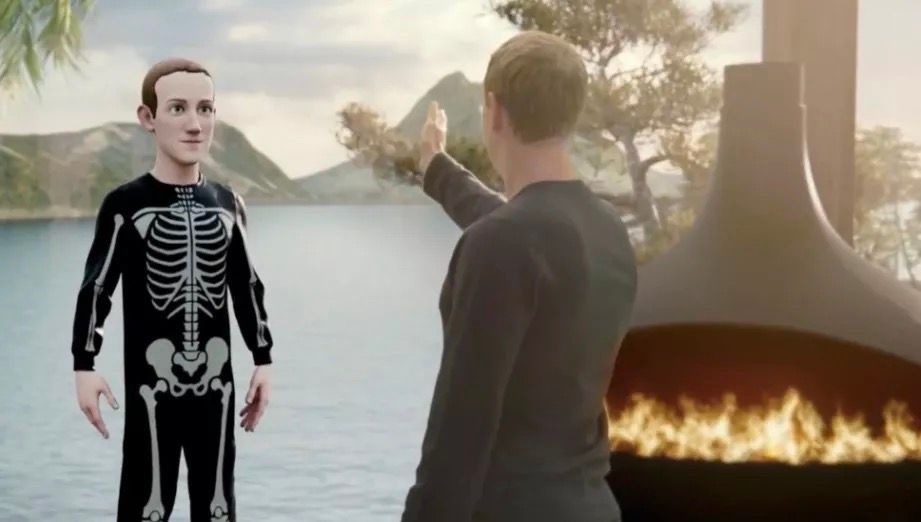
In the Facebook Metaverse promotional video, Zuckerberg talks to his own image in the Metaverse.
For the Metaverse, optimism and pessimism go hand in hand. The American "Atlantic Monthly" published an article called "The Metaverse is Bad", columnist Ian Bogost said that Zuckerberg accepted the setting of "The Matrix" and hoped that humans would enter that Unreal world. The science fiction writer Neil Stephenson who created the "metaverse" originally intended to make us wary of the metaverse, but the irony of reality is that the tech giants represented by Zuckerberg were inspired to create the metaverse. Zuckerberg said that their purpose is not to make money, but to provide better services, in fact, their purpose is power and control.
Ian Bogost also critiques the metaverse on a philosophical level. He believes that the metadiscursivity of "meta" promoted by postmodern critics allows "going meta" to realize the transfer of power behind it. "Towards the meta" means the tendency to talk about things instead of talking about them, which creates short circuits and delays in meaning. In Greek, "meta" means transcendence, but in today's context, "meta" refers to something that is above or beyond other things. At this point, dominance, power, and conquest ensue. In 1928, there was a book on eugenics called Metanthropos (Metahumans), which envisioned a better, superior human being (and it was later known what happened). Today, billionaires are also envisioning a better universe.
In a Washington Post interview with Janet Murray, director of the Georgia Institute of Technology's Center for Digital Integrative Liberal Arts and a pioneer in digital connectivity research, Murray was concerned that surveillance capitalism would become more rampant in the metaverse. Because in the virtual world, the influence of these tech giants will be omnipresent.
According to the BBC, one of Facebook's earliest investors, Roger McNamee, slammed Facebook's metaverse as a bad idea. He said we shouldn't allow Facebook to create a dystopian nightmare because he doesn't trust Zuckerberg to not abuse his power in the metaverse.

Roger McNamee is considered Zuckerberg's "spiritual mentor" and is a staunch opponent of Zuckerberg's ongoing "metaverse" project.
Similar remarks abound, and many are skeptical of the tech giants who control the metaverse, where they are the gods of this universe. Like the dystopia envisioned by Ready Player One, how can we ensure that the powers that control the metaverse don't do evil?
In addition to fears of a digital dystopia, many question the operability of the metaverse project on a practical level. In theory, people work eight hours (production), sleep eight hours, and leisure (consumption) for eight hours. Today, Internet companies have managed to capture people's eight hours of leisure time (you look at your screen time and how much you spend online versus offline) and are eroding eight hours of work. At this time, the development of the Internet has entered a bottleneck - the competition with others (for example, using a new medium such as short video to grab everyone's time to play traditional social media, etc.) Appear.
At this time, Internet companies have another option - to completely occupy the eight hours that people work. The home office of the epidemic has brought hope to the development of online office. In a metaverse that achieves immersion, one can completely move work into the metaverse. This also means that production in the economic chain must also completely enter the virtual world controlled by Internet companies. When production and consumption are all in the hands of the metaverse - this metaverse will be a "super Amazon", with raw materials, supply chains, Manufacturing, distribution, retailing, consumption, and finance will all be contained within the endless black hole of the metaverse. That's why Metaverse companies put so much emphasis on their virtual economic system. At this time, as Shaan Puri said, the value of digital life has been greater than physical life, and people will mainly live in the digital world. As long as the economic cycle chain of human beings is completely incorporated into the metaverse, plus the rule-making power held by these tech giants, they control everything.
The problem with this imagination is that, just as many people can't work from home during the pandemic, because many jobs simply can't be performed online - at least you can't imagine blue-collar workers working completely online these days (why are underage players in Fortress? Night” and Robles? In addition to young people’s ease of accepting new things, their time in school may also be a very important factor). Even in an era when manufacturing automation is very common, people still have needs for services in the real world: you will want to eat dishes made by real chefs, you will want to have real people cut your hair, and you will want to travel and breathe nature. Air... As long as our bodies are still alive in the real world, we have real-world needs and desires and spend time taking care of our real life. Therefore, the metaverse may also encounter growth bottlenecks.

A still from the movie Out of Control (2021).
In addition, if all economic chains are included in the metaverse, this also means the Great Depression of the real world - in "The Matrix", the real world is a desert, in "Ready Player One", the real world is depressing, a broken. Is this what we want to see? Therefore, the metaverse may be counteracted by other industries and government departments in the first place - because the metaverse may damage their interests and order in the real world. A few years ago, Facebook’s ambition to launch a cryptocurrency “Libra” aroused the vigilance of many countries. Due to its failure to solve regulatory problems, it is now half-dead.
Of course, some people will argue that many problems will be solved with the development of technology. For example, after the realization of the human-machine interface, people can get rid of all the needs of the real world, and the economic and social organization of human beings will also undergo corresponding changes. No matter when these fantasies are realized, at least today we still need refreshing air, beautiful nature, eye contact, skin touch, delicious food, touchable love, after all, we are only a carbon-based creature for the time being.
Like my work? Don't forget to support and clap, let me know that you are with me on the road of creation. Keep this enthusiasm together!

- Author
- More